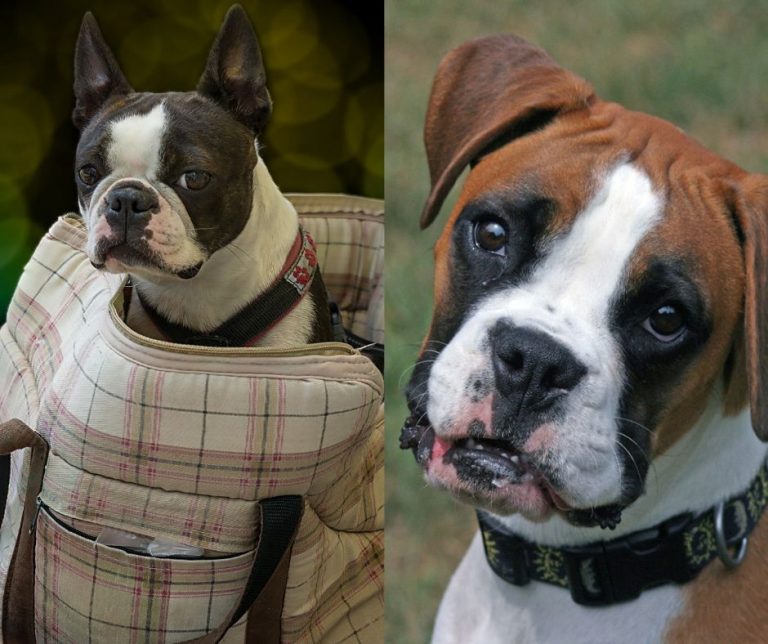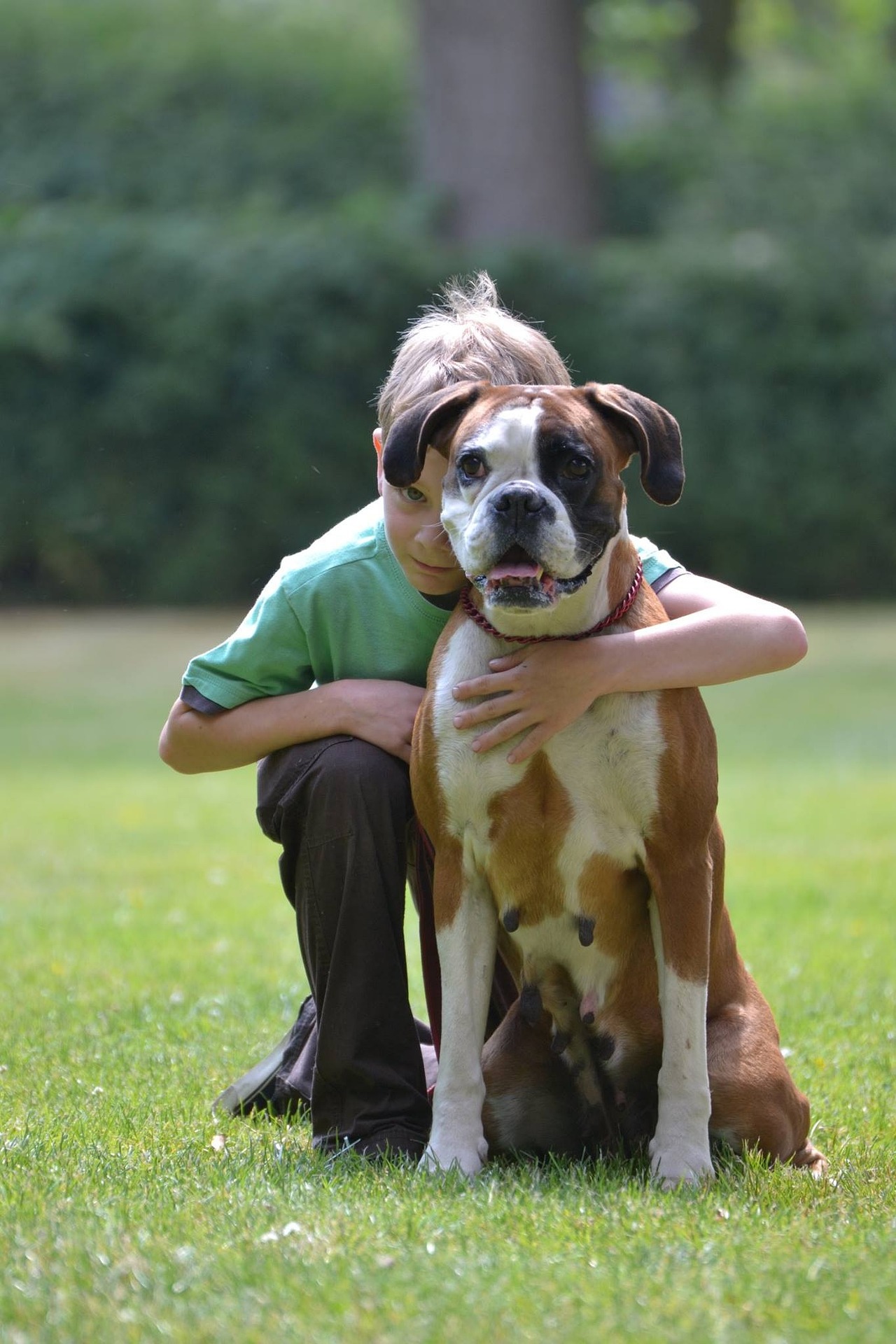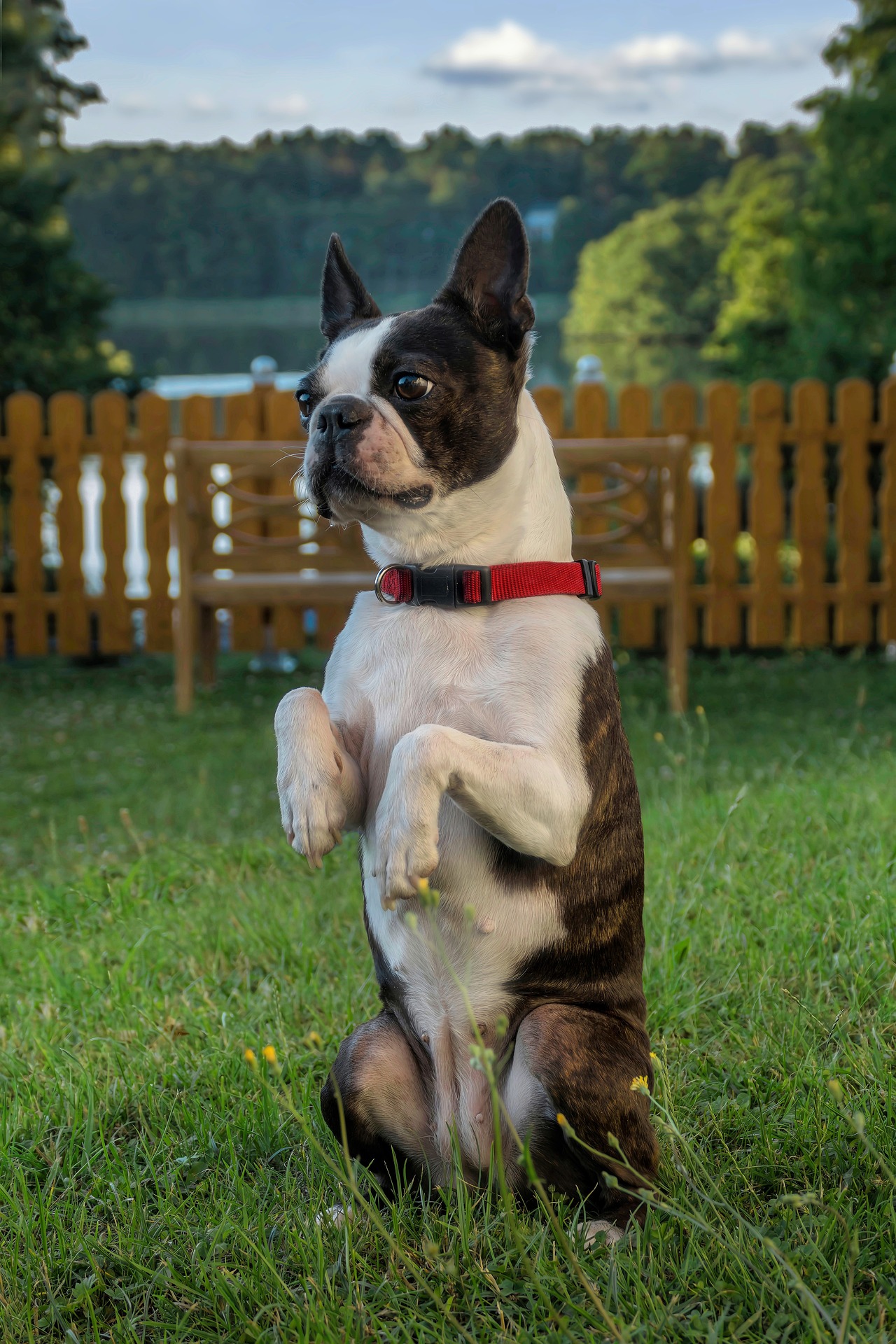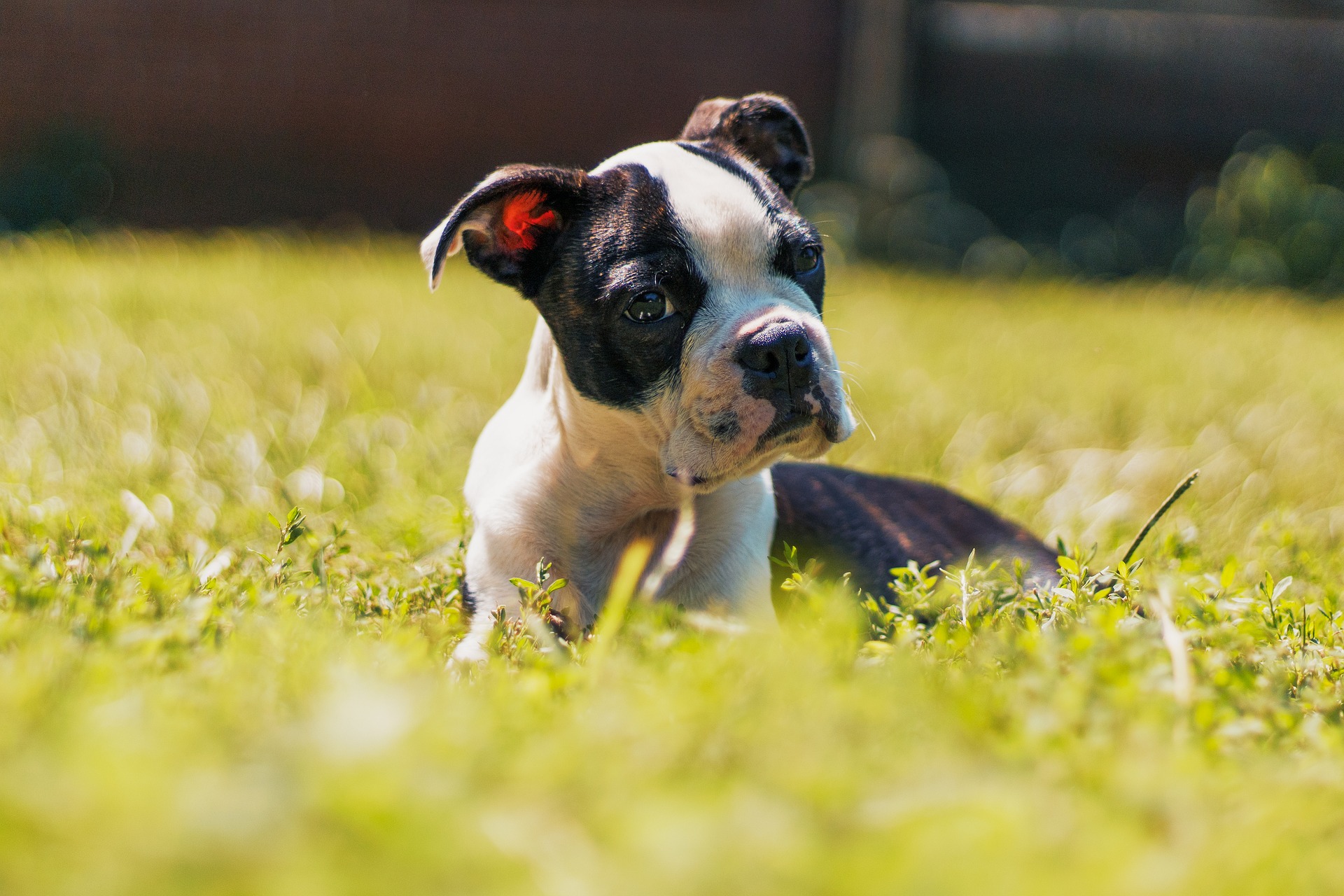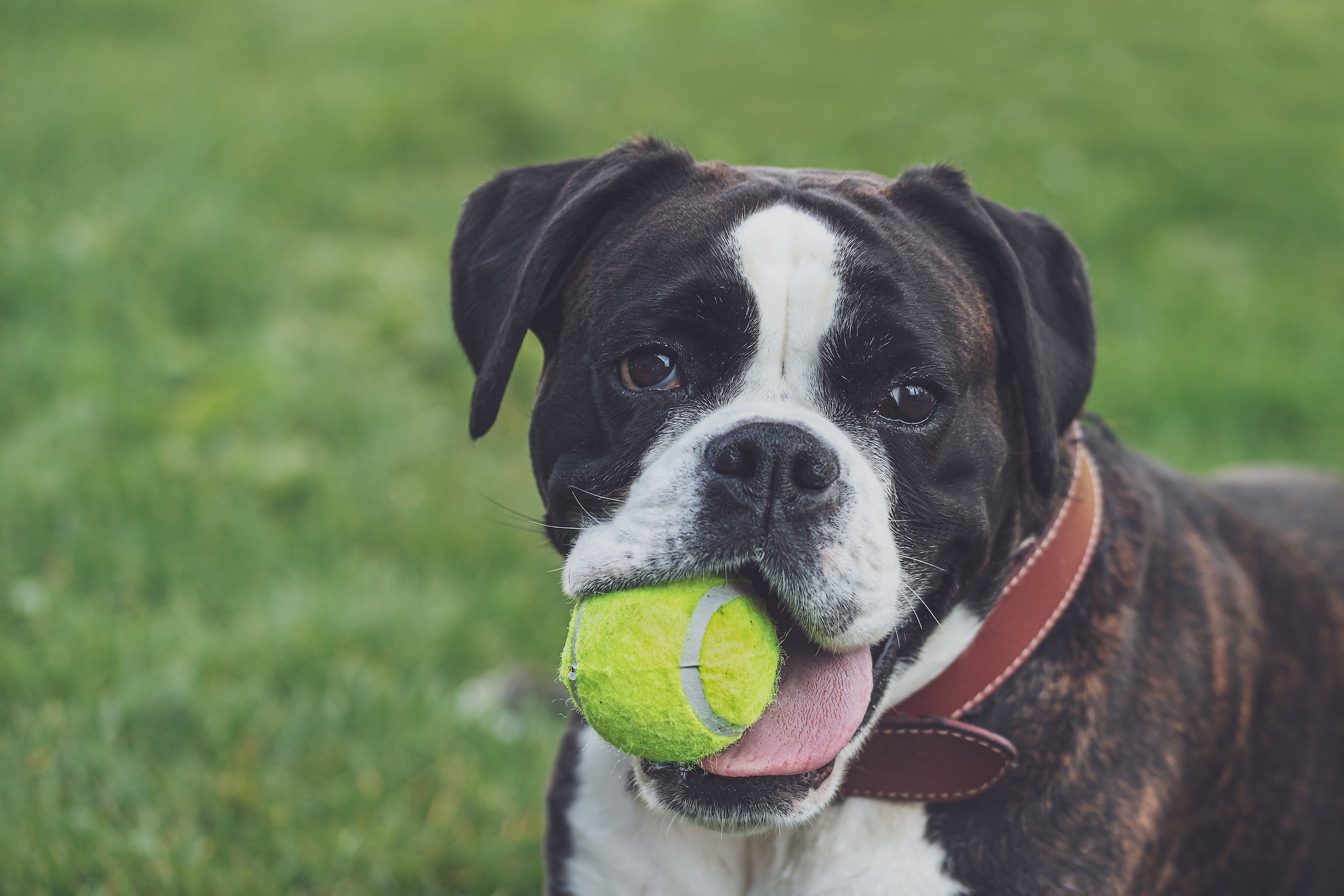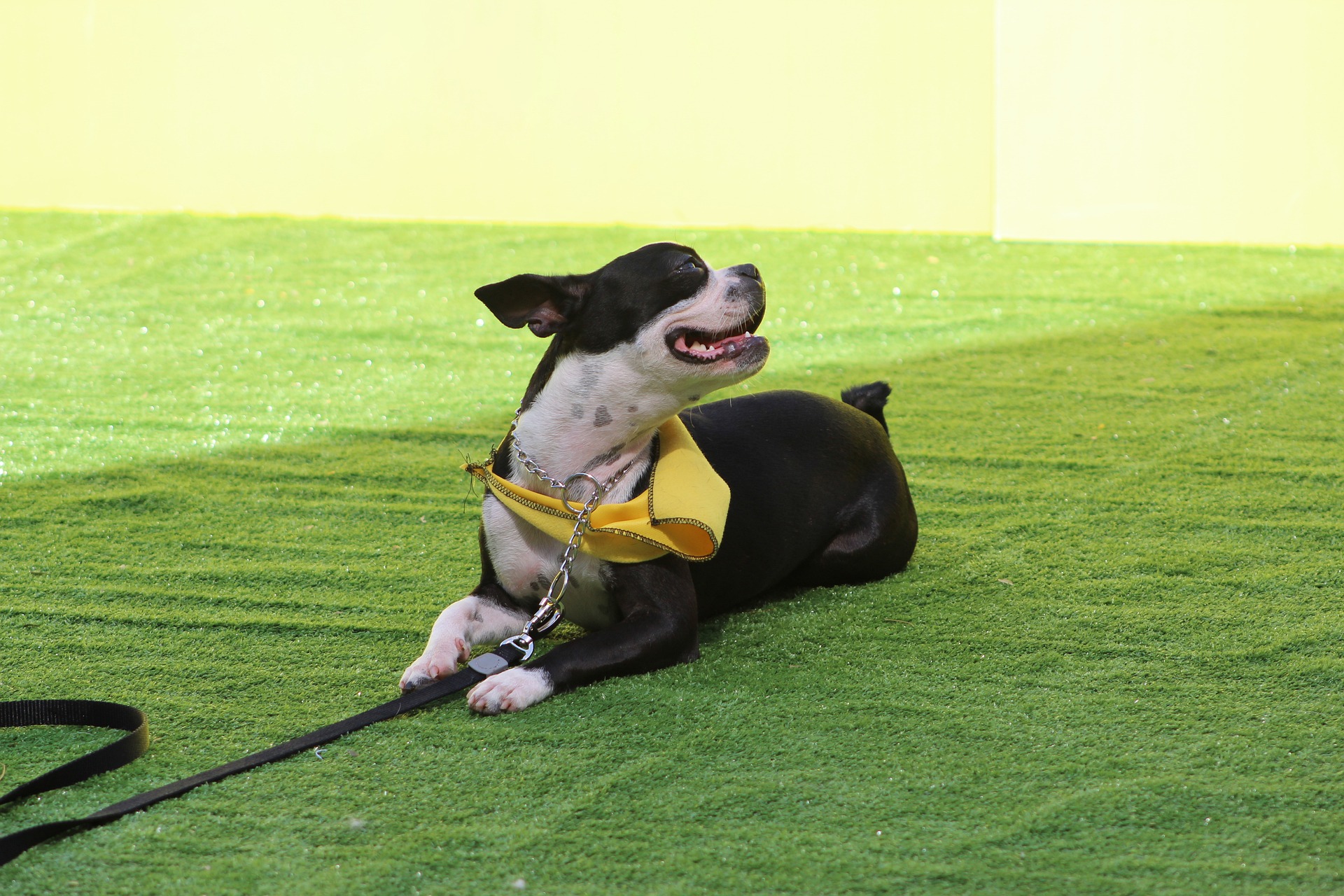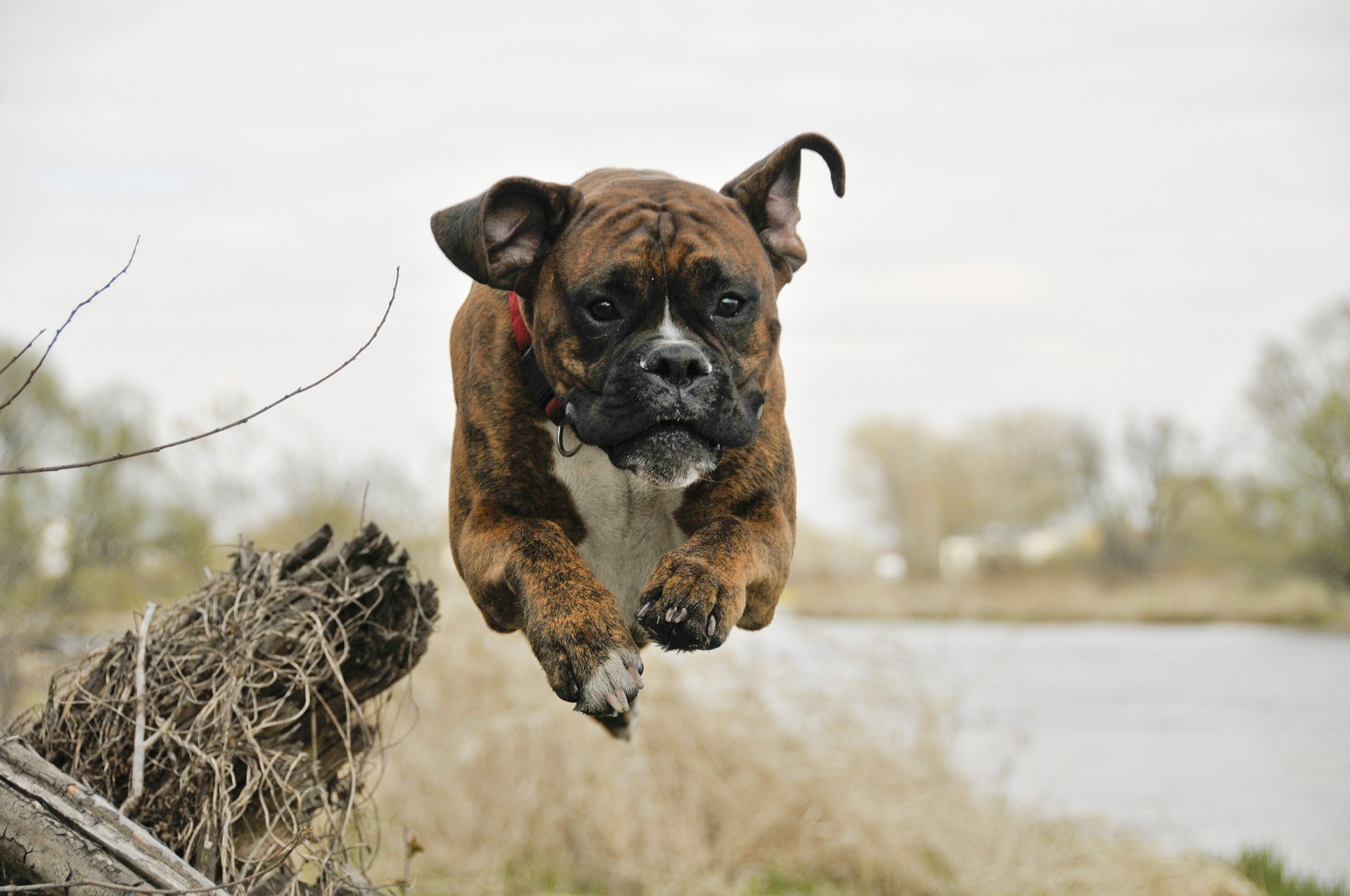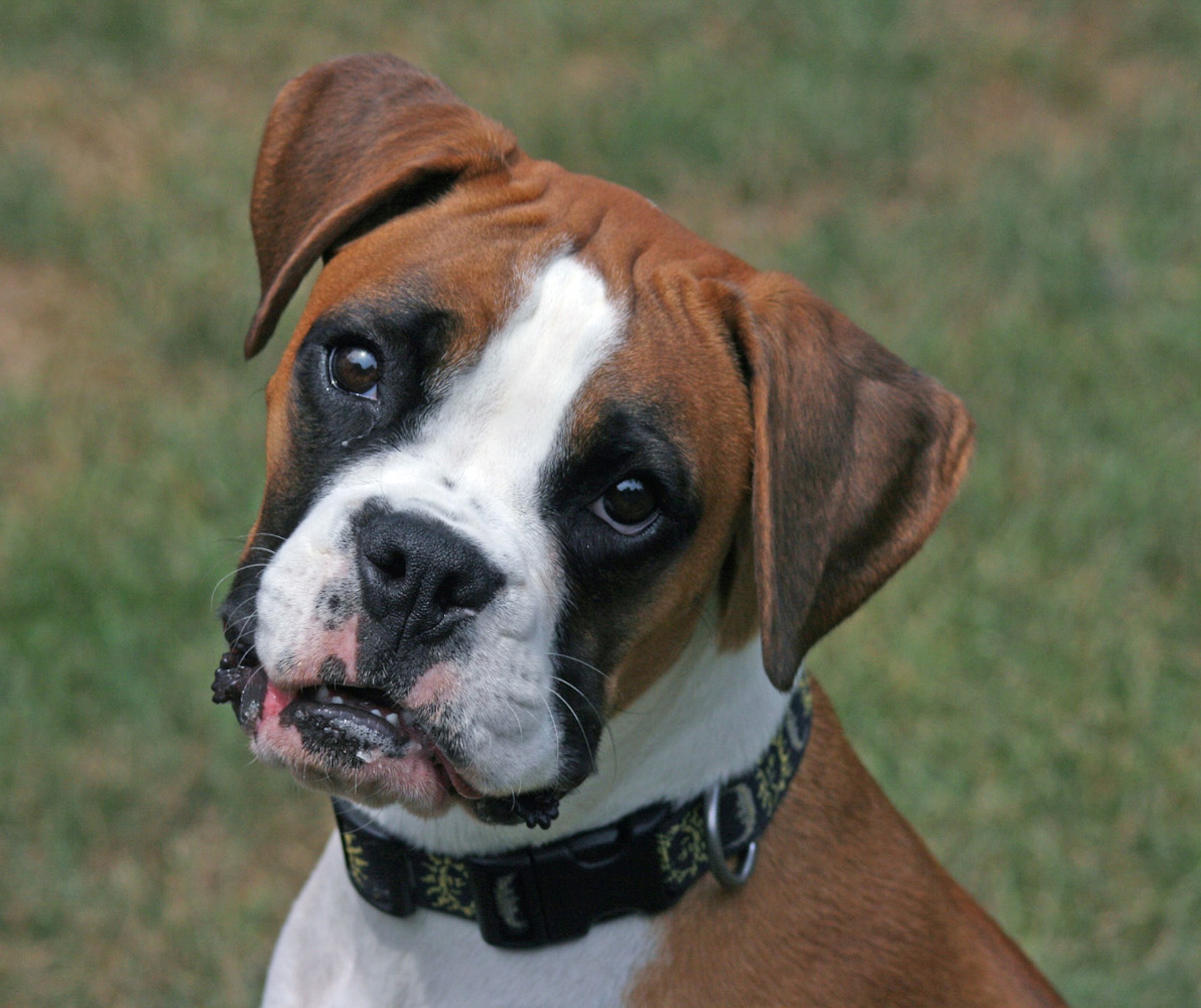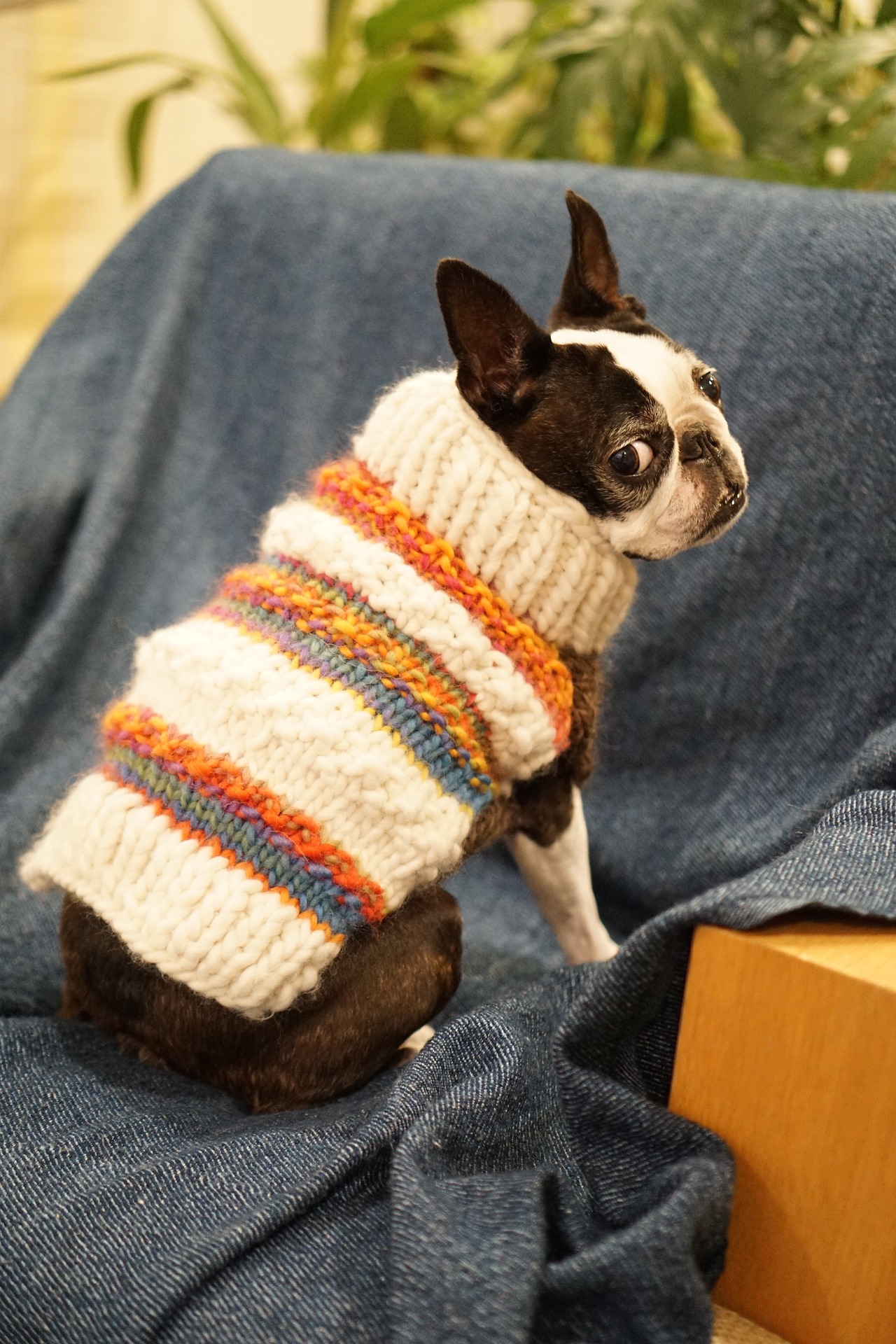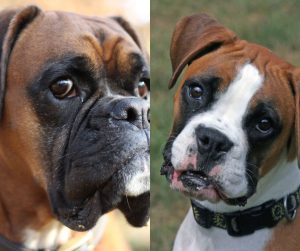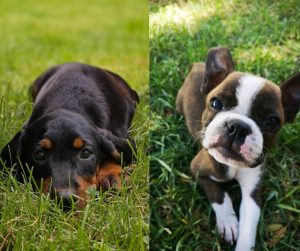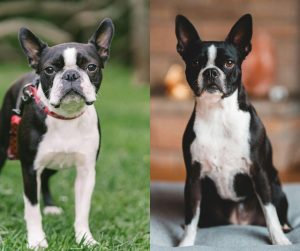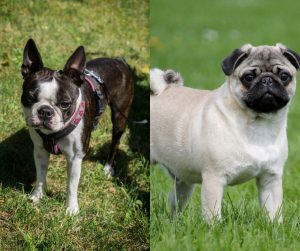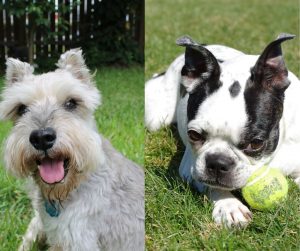When looking to welcome a new furry friend into your home, understanding the unique traits and needs of different breeds is key. The Boston Terrier and the Boxer are two popular breeds that dog lovers often compare.
While both breeds share a reputation for being excellent with children and having low-maintenance grooming needs, there are distinctive characteristics and requirements for each that potential pet owners should be aware of.
The Boston Terrier, often referred to as “the American Gentleman,” offers a friendly and comedic disposition which has captured the hearts of many. They are compact, with a distinctive tuxedo-like coat, and known for their affectionate nature.
On the other hand, the Boxer is a larger, more muscular breed, exuding confidence and energy that can be a great fit for an active family. They are loyal, protective, and fun-loving, which makes them perfect companions for those willing to invest time in dog training and exercise.
So, let’s take a look at the Boston Terrier vs Boxer dog breed comparison. Both dog breeds are recognized by the American Kennel Club, so choosing one is a matter of preference.
Key Takeaways
- Boston Terriers and Boxers are both friendly breeds well-suited for families
- The breeds vastly differ in size, with Boxers being larger than Boston Terriers
- Both require exercise, but Boxers typically need more physical activity and space
Breed Origins and History
Digging into the past of the Boston Terrier and the Boxer reveals a tale of two cities: Boston in the United States and Germany. These two breeds share a common ancestry with bulldogs and terriers, once bred for gritty roles that have evolved into the charismatic companions recognized by the American Kennel Club today.
Boston Terrier Origins
The Boston Terrier, known as the “American Gentleman,” is the product of America’s melting pot. It sprouted from the busy streets of Boston.
In the late 19th century, breeders created a charming compact dog by crossing English Bulldogs with the now-extinct White English Terriers. They weren’t always the friendly companions known today; the Boston Terrier’s ancestors were originally bred for fighting. But as times changed, so did their roles, transitioning into beloved house pets and earning recognition by the American Kennel Club as a purebred.
Nowadays, the Boston Terrier dog breed is part of the same companion group like the English Bulldog, French Bulldog, and Pug.
Boxer Origins
Meanwhile, over in Germany, the Boxer was taking shape as a working dog par excellence. Descendants of old fighting dogs brought from Asia to Europe, Boxers are likely mixed with a breed known as the Bullenbeisser, a now-extinct dog used for hunting.
This breed was designed to be both strong and agile, assisting hunters by holding down prey until the hunter could arrive. Later, they found their place as working dogs in a multitude of roles including guarding and performing. The American Kennel Club welcomed the Boxer as an official breed in the early 20th century, reflecting their growing popularity as both working dogs and devoted household pets.
Physical Characteristics
When comparing the Boston Terrier dog breed and Boxer, their physical traits are quite distinct yet equally charming. Each breed showcases unique attributes that cater to different preferences for dog lovers.
Size and Weight Comparison
The Boston Terrier and Boxer differ significantly in their size and weight. Here’s how they typically measure up:
- Boston Terrier
- Height: Up to 17 inches
- Weight: Up to 25 pounds
- Boxer
- Height: Up to 25 inches
- Weight: Up to 70 pounds
It’s clear that Boxer dogs are the larger breed, offering a more robust frame compared to the smaller, more compact Boston Terrier.
Coat and Colors
Coat maintenance is a convenient factor for both breeds, as they have low grooming needs thanks to their short coats. In terms of color variety:
- Boston Terrier: Common colors include black, brindle, or a combination with white. The coat is typically smooth and fine, which sheds minimally
- Boxer: Also sporting a short coat, these dogs come in fawn or brindle, often with white underbellies and feet. Their coat is shiny and lies smooth against the body, shedding relatively more than Boston Terriers
Distinctive Features
Each breed carries some distinctive physical features that differentiate them at a glance:
- Boston Terrier: Known for their tuxedo-like appearance, Boston Terriers have a squarish face and large, round eyes that give them a friendly expression. They are brachycephalic, meaning they have a shorter-than-normal muzzle which is important to bear in mind for health reasons
- Boxer: Boxers have a muscular and strong build exuding power and agility. They possess a defined jaw and a square nose that contributes to their stalwart appearance. Boxers can be prone to bloat, so monitoring their diet and meal times is crucial for their wellbeing
Personality and Temperament
When choosing between a Boston Terrier vs Boxer, understanding their distinct personalities and temperaments is crucial. These breeds both bring joy with their engaging personalities but vary in certain traits and behaviors.
Boston Terrier Disposition
Boston Terriers are known for their charming and affectionate nature. They are bright and playful companions that tend to form strong bonds with their families.
In terms of energy, they exhibit a nice balance. While they have playful spurts, Boston Terriers can also be content to relax.
With a friendly demeanor, they typically get along well with children and other pets. They’re alert and intelligent, which can sometimes lead to stubbornness, but they respond well to consistent training. Here’s a quick rundown:
- Energy Levels: Moderate; enjoy playtime but can also be calm
- Friendliness: Highly sociable with family and good with kids
- Intelligence: Smart, can be trained with consistency
- Playfulness: Loves games and interaction
- Alertness: Makes them good watchdogs without being overly yappy
- Temperament: Varies from clownish to dignified, but generally affectionate and gentle
Boxer Disposition
Boxers, on the other hand, are bundles of energy known for their enthusiastic and exuberant personality. They show affection easily and deeply; they’re patient and protective, making them perfect family dogs.
They display more energy compared to Boston Terriers and need ample exercise to keep them content. Dog training should start early, as Boxers can be quite boisterous if not guided properly.
This breed’s protective instinct makes them excellent watchdogs. They combine courage with a playful spirit, and their intelligence shines through their energetic nature. Here’s what to note about Boxers:
- Energy Levels: High; require lots of activity and exercise
- Friendliness: Very outgoing, especially warm with their families
- Intelligence: Intelligent and responsive to training
- Playfulness: Extremely playful; may remain puppy-like for several years
- Alertness: Highly alert; great natural protective instincts
- Temperament: Joyful, courageous, and can be calm when needed after exercise
Care and Keeping
When deciding between a Boston Terrier vs Boxer, understanding their care requirements is essential to ensure a happy, healthy life for your new companion. They each have unique needs when it comes to exercise, health management, and grooming.
Exercise and Training
Boston Terriers and Boxers are brimming with energy and require regular exercise to stay healthy and content.
For Boston Terriers, daily walks and some playtime are usually enough to satisfy their exercise needs. They’re also quite intelligent and respond well to training with positive reinforcement.
Boxers, being larger, need a bit more rigorous activity. Regular runs and longer walks paired with ample playtime are ideal.
They’re also intelligent and easy to train, but one might notice the Boxer’s stubborn streak, which calls for patience and consistency in training.
Health and Lifespan
Both dog breeds have their own set of health concerns.
Boxers may be prone to serious conditions like cancer, heart problems, and hip dysplasia, while Boston Terriers have a predisposition to allergies, patellar luxation, and eye diseases.
Regular check-ups with a veterinarian can help catch these issues early.
The lifespan of Boxers typically ranges from 10 to 12 years, whereas Boston Terriers can enjoy a slightly longer life expectancy of 11 to 13 years.
Providing a suitable diet, regular exercise, and attending to health issues promptly can help maximize their lifespans. Because of their brachycephalic nature, breeders have tried to crossbreed these two with healthier breeds.
Grooming Needs
Grooming a Boston Terrier or a Boxer is relatively easy due to their short coats. However, Boston Terriers are known for being a bit easier to groom.
They generally require only weekly brushing to remove loose hair and keep their coat shiny.
Boxers, though also low maintenance, may need brushing a couple of times a week due to their larger size.
Both breeds should have their nails trimmed regularly, and their ears checked to prevent infections.
It’s important to note that these breeds can be sensitive to extreme temperatures, so one should ensure their comfort in both hot and cold weather.
Living With Your Dog
When choosing between a Boston Terrier and a Boxer, understanding how they fit into home life is crucial. They both make wonderful companions but have different needs and characteristics that suit different living environments and family dynamics.
Compatibility with Families
The Boston Terrier, often known as the “American Gentleman,” is renowned for its friendly disposition and compatibility with children. They are affectionate and often form a strong bond with family members, making them excellent best friends for kids.
Conversely, Boxers are also great with families, offering a playful demeanor that can match the energy of active children. They can also serve as effective watchdogs, alert to potential threats, yet typically gentle within the family circle.
Boston Terrier:
- Size: Small, usually pairing well with children
- Affectionate: Yes, loves close contact with family
Boxer:
- Size: Larger, better for families with more space
- Affectionate: Yes, quite energetic and playful
- Watchdog Capabilities: Natural guardian instincts
Apartment vs. House Living
Living in an apartment or a house with either breed has its considerations. Boston Terriers are smaller and require less space, which makes them suitable for apartments. They tend to adapt well to both hot and cold weather, but you should monitor them for signs of discomfort due to their short noses.
Boxers are larger and generally benefit from having more room as found in a house with a yard to expend their energy. They have a higher sensitivity to extreme temperatures, particularly heat, because of their short muzzles.
Prospective owners should be mindful that Boxers may need ample cool, shaded areas and sufficient water during warmer periods.
Boston Terrier:
- Size: Up to 17 inches, conducive to apartment living
- Weather Tolerance: Adaptable but monitor in extreme temperatures
Boxer:
- Size: Can reach up to 25 inches, better suited for a house
- Weather Tolerance: More susceptible to heat; requires consideration and care in hot weather
Both breeds may require attention to specific health concerns related to their eyes, such as cataracts or cherry eye, so regular veterinary visits are important. Their social needs mean they thrive on interaction and companionship, often becoming a cherished part of the family dynamic.

